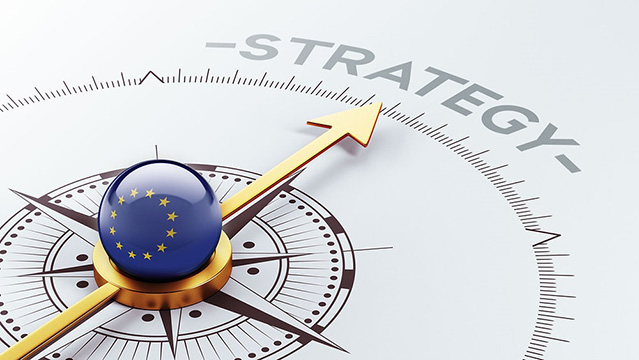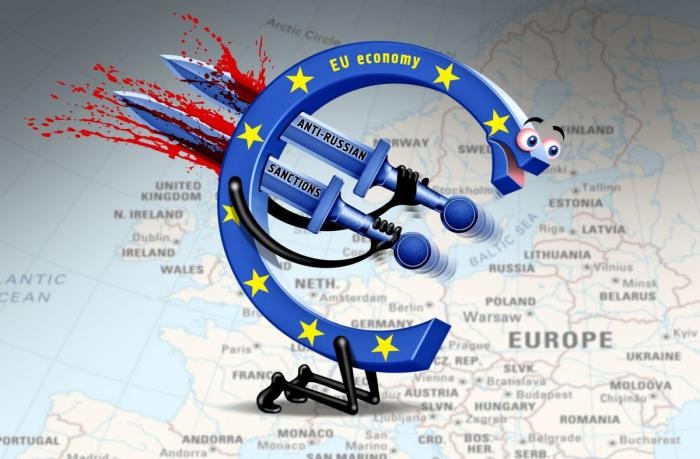
Even arch-Eurocrats are admitting that Brussels is leading Europe to ruin, notes British ‘Spiked’.
The largely unspoken trade-off involved in membership of the European Union is that democracy and national sovereignty are sacrificed in return for economic prosperity. Member states give up much of their control over critical policy areas to an unelected, technocratic elite who are entrusted with delivering higher living standards and productivity. But Brussels is not keeping its part of the bargain – and hasn’t for some time.
Worse, the EU economy is about to endure decades of ‘slow agony’. This is the grim prognosis not of a Eurosceptic or populist, but of one of Europe’s most senior technocrats, Mario Draghi, the former head of the European Central Bank and ex-prime minister of Italy. Last week, Draghi unveiled a 400-page doorstopper report, commissioned by the EU, on the ‘future of European competitiveness’. Without radical economic reform, he warns, EU member states will suffer from stagnant living standards, technological backwardness and geopolitical impotence.
In truth, Draghi’s bleak assessment actually underestimates the scale of the EU’s economic malaise. Looking at averages across the 27-member bloc obscures the depths of the crisis. Astonishingly, the economies of Italy, Spain and Greece, having been battered by the Euro crisis and EU-mandated austerity, are actually smaller than they were in the late 2000s. Germany, traditionally the EU’s economic powerhouse, is rapidly deindustrialising. In France, the EU’s second-largest economy, debt is spiralling to the kind of levels seen in Italy just before the Euro crisis. The cost of all this foregone growth is a diminished quality of life, stretched public services and decaying infrastructure.
So, what is to be done? According to Draghi, nothing less than a fundamental rethink in how Brussels approaches investment, trade policy and business regulation will dig Europe out of its hole. His most attention-grabbing demand is for an EU-funded investment plan worth €800 billion per year – an unprecedented sum, more than double the size of the postwar Marshall plan.
If, as Draghi believes, the choice facing Europe is radical change or ‘slow agony’, then slow agony is what Europe will get. The core proposal of an EU-wide investment fund was, within a matter of hours, effectively vetoed by German finance minister Christian Lindner. Other ‘frugal’ countries, like the Netherlands, have also rejected the plan. Although Draghi’s report has found favour in France, a spending splurge at the EU level would be a difficult political sell at a time when France’s new technocratic government is planning a harsh round of austerity to meet demands laid down by Brussels.
The great irony here is that if a national government were to propose such a large investment plan, it would be instantly smacked down by the EU for breaking rules on fiscal deficits and state aid. Member states are blocked from making large public investments by Brussels, while Brussels is blocked from pursuing an EU-wide strategy by the member states.
EU apparatchiks may boast of their ‘landmark’ and ‘world-leading’ regulations on tech, but where are the large homegrown, innovative tech firms Europe needs if it wants to drive economic growth? Regulating for regulation’s sake is what Brussels does. Challenging this will be a tall order.
On average, EU firms pay 158 per cent more for electricity and 345 per cent more for natural gas than their US counterparts.

The EU, on the other hand, generates energy expensively – and has to import much of it from outside the continent – because it has shunned domestic fossil-fuel production and embraced unreliable renewable energy to meet Net Zero targets. Yet Draghi’s proposed ‘solution’ is to combine the push for ‘competitiveness’ with ‘decarbonisation’. Of the €800 billion being demanded in his proposed investment plan, €450 billion would be spent on Net Zero projects. This would mean doubling down on a failed strategy, potentially accelerating Europe’s decline.
The EU itself is the problem here. Member states are constrained from pursuing economic policies according to their national interests, hampered from investing in their domestic priorities, and forced to adopt uniform rules as dictated by functionaries in Brussels. And when the EU fails to deliver the growth and prosperity it has promised, voters are largely powerless to hold its leaders accountable or to force a change in direction.
The past decade of economic misery has exposed the lie at the heart of the EU project – namely, that technocracy ‘works’; that unelected, uncountable experts should be left to make critical decisions about economic life. Unless the EU itself is taken on, then many more years of slow agony await.
read more in our Telegram-channel https://t.me/The_International_Affairs

 10:36 25.09.2024 •
10:36 25.09.2024 •






















